One of the most important element of electric cars is not in the own one. As normal cars need petrol stations, electric cars need charging points.
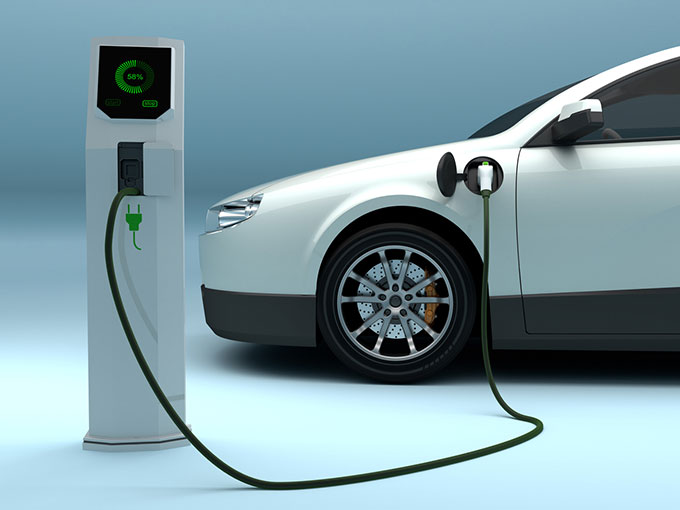
Because of electric cars characteristics petrol stations are not the suitable place for charging them. In a petrol station it is considered a car is connected to pump only during several minutes. Even in the best situation an electric car needs to be connected a minimum o half an hour in order to get an acceptable charge.
In this post we will evaluate all available options.
Charging point
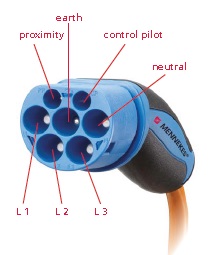
The connector more used to charge electric cars is Mennekes connector. This type of connectors is used by the main car manufacturers like BMW, Tesla, Mercedes, Volkswagen, etc.
Currently Mennekes version 2 connector is the one used by most of electric cars. This type of connector allows a charging power up to 50 KW. Additionaly allows communication between electric car and charging point in order to inform electric car about charging capabilities and negotiate charging strategy.
Charging time
In order to evaluate needed time for charging our electric car we need to know first electric car consumption. Obviously is different depending on model but we could consider a consumption of 20 KWh for 100 Km. If our charing point has 5 KW power we would need 4 hours time for giving 100 Km range to our electric car.
Considering maximum power of Mennekes connector (50 KW) we would need 24 minutes (0,4 hour) per 100 Km range. At this rate it is only possible to charge our battery up to 80% capacity. Rate should be reduced when battery charge is next to 100%. Otherwise battery could explode.
50 KW is a really high power and it needs industrial installation. Not only it is a expensive installation but electric company will charge us an expensive monthly fee proportional to maximum power contracted. Usual power will be less than 10 KW and we will need more than 2 hours for 100 Km range.
We could realize the main problem for charging our car is time.
Public charging points
This will be the option for most of people who don’t have their own private garaje. In this case a public charging point is needed. Public ones will be needed on vacation or when travelling as well.
Pay per use charging points
These charging points are linked to the interest of city goberments. They use to be placed in streets and public areas. Payment method use to be supported by city goberment and there are agreements with private companies which are in charge of system maintenace and management.
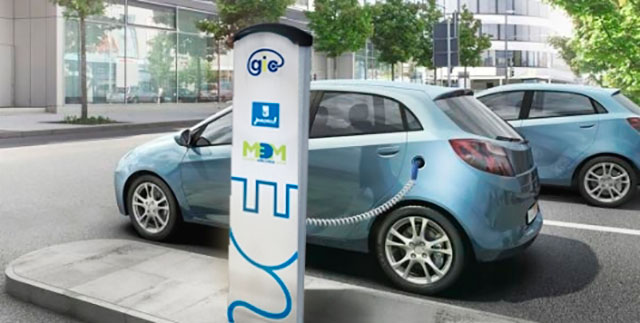
These charging points use to provide a higher power up to 22 KW allowing a charging time of 1 hour per 100 Km range. In the opposite price per KWh use to be from 0.2 € to 0.5 €. In the best case we will pay 4 € per 100 Km range which is an acceptable price. If we pay 0.5 € per KWh the price for 100 Km range will be 10 €, maybe comparable to many combustion cars.
Public garaje
Included in the service provided by a public garage they are offering charging points in some of parking places. As parking service is paid garage owner could use part of service price for covering charging cost and it is possible a more powerful one.
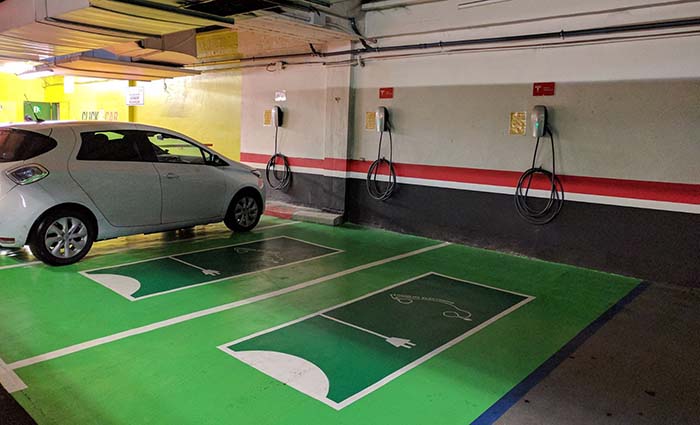
Usually there is no extra cost for charging our car but it is an added value of the public garage. From our point of view it is an added value for selecting the garage but it is really expensive if charging is the reason to use it.
Free charging points
They use to be in commercial centers, restaurants, hotels, etc. Charging points are the added value for their customers. Charging point use to have a power of 3.6 KW and we will need 5 hours and a half per 100 Km range.
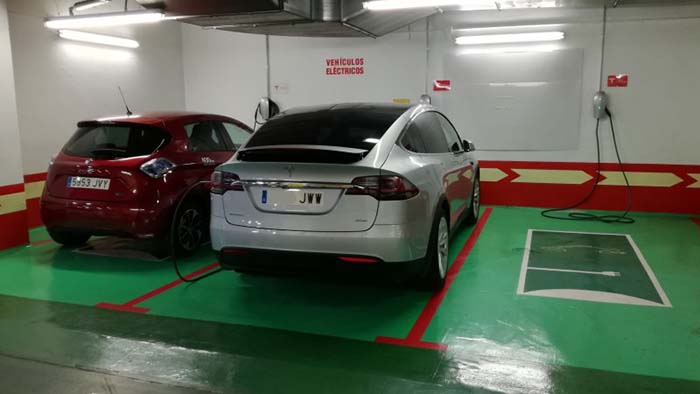
In some commercial centers these charging points are sponsored by car companies which decorate charging points with their publicity. In this case charging points use to have higher power up to 11 KW, this means 2 hours per 100 Km range.
Home charging points
It is the most comfortable solution, but own private garage is needed. This garage is the place where our electric car will stay most of the time allowing fully battery charging. Our car will be always fully charged and available with maximum range.
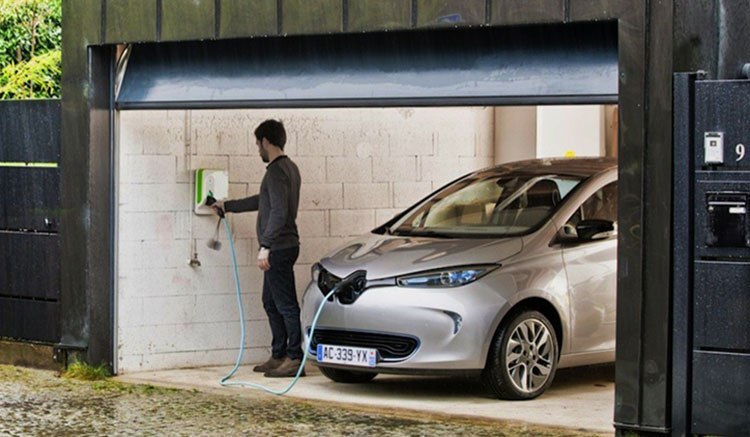
These charging points are not really powerful. On one hand a powerful charging point needs an industrial installation which is expensive. On the other hand slow charging is less stressing for batteries and batteries store higher energy.
Usual charging points have from 3.6 KW to 7.2 KW power. Charging time between 3 hours (7.2 KW) and 5 hours and a half (3.6 KW) pero 100 Km range.
Price use to be from 0,10 €/KWh to 0,15 €/KWh but, a really interesting offer usually provided by electric companies, is a ultrareduced night tarif which use to be less than 0.05 €/KWh. Charging our electric car during night we have an really competitive price of 1 € per 100 Km range: No cheaper trasportation option at all. Of course we have to considered fix monthly fee of our contract.






